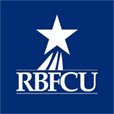Starting Your Own Business: Plan, Launch, Manage, Grow
Most Americans want to run their own business. That’s according to published research that claims 62 percent of Americans want to open their own business.

This entrepreneurial desire is vibrant and can be found among different age groups. Forbes cites a study that finds “millennials” are starting businesses at younger ages than their counterparts in previous generations. And the Free Enterprise website of the U.S. Chamber of Commerce examined the findings of a published report that showed 24 percent of all new businesses in America during the mid-2010s were started by people aged 55 and older. That’s 10 percentage points higher than the previous decade.
But new business owners worry how their enterprise will be funded. They have a fear of failure, and they need to know a way to make their ideas and passions grow into a viable business.
The U.S. Small Business Administration (SBA) offers a four-pronged approach with its Business Guide publication. It can be found by clicking here.
Let’s take a quick look at each bit of advice:
Plan your business — Conducting market research can help you identify your potential customers and a base of support for your product or service. Analyzing your competition can help you find ways to make your business unique. Be aware that the SBA offers business plan templates. Calculate your startup costs. Also, study existing businesses to get an idea of how to plan your business, and even consider buying an existing business.
Launch your business — There are lots of things to consider, like your location, structure, name of business, how to legally register your business and apply for tax IDs along with proper licensing and permits. You’ll need a business account when you’re ready to start accepting money from customers or clients, and you should start thinking about insuring your business as well.
Manage your business — Start by accounting for your revenue and expenses with proper bookkeeping. You’ll need a basic payroll structure for employees and tax services, which can be handled through your financial institution’s business services department. You might also need legal services, marketing and sales plans, and contingencies for disasters or other emergencies.
Grow your business — If you need capital and funding to expand your operation, there are financial institutions that offer SBA loans. RBFCU has been recognized as the No. 1 SBA lender among regional and national credit unions and offers all SBA products. Business owners can find ways to expand as a federal contractor and through programs for women-owned businesses and other demographic groups.
There are several steps to cutting the ribbon and opening shop. Along the way, keep your eye open for free seminars that can give you expert advice.



